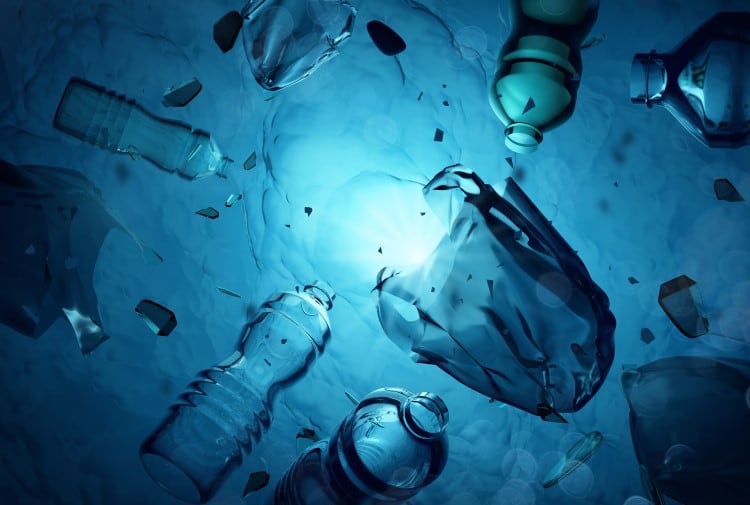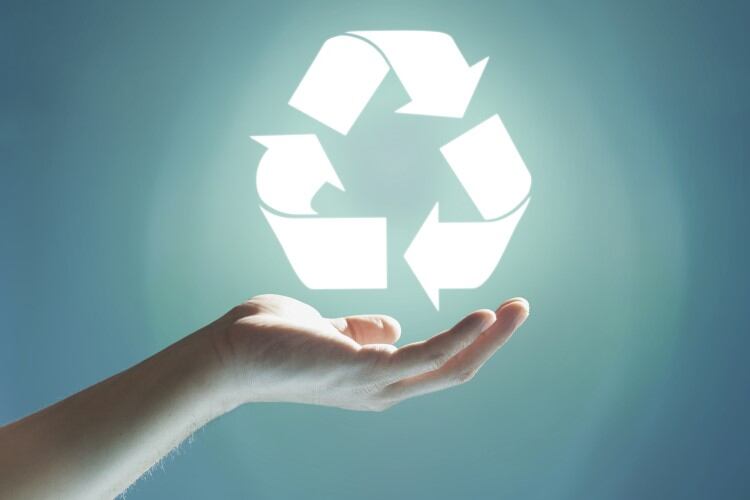According to Greenpeace, only 5% of plastic waste in the US was recycled in 2021, making the country the biggest contributor to plastic waste. In comparison, the EU achieved a recycling rate of around 42% and the UK - 45% - during the same time period.
One of the reasons behind the US’ poor record is that many types of plastics are not recyclable in traditional recycling facilities. Mechanical recycling, which has been the default approach to recycling globally in recent decades, has continuously fallen short of processing so-called hard-to-recycled plastics that are contained in products such as food pouches or snack wrappers. Greenpeace labeled The Coca-Cola Company, PepsiCo and Nestlé the world's biggest plastic polluters in its 2022 branded report, highlighting that 'voluntary commitments are not enough' to tackle the global issue.
Now, hard-to-recycle plastics could become part of the food industry's plastic waste problem thanks to advanced recycling technology. This method uses chemical processes and/or heat to break down hard-to-recycle plastics into monomers, making it possible for more plastic to remain in the loop. From there, the processed materials can be incorporated in the manufacture of recycled packaging, ensuring that less virgin fossil-based plastic is used by companies.
TekniPlex Consumer Products, a firm that specializes in the formulation, processing, and manufacturing of materials-based solutions including packaging, has recently obtained a globally-recognised certification that enables its clients, such as food companies, to better communicate the sustainability credentials of their recycled packaging.
TekniPlex leverages advanced recycled polypropylene as part of its food-sector solutions, such as coffee pods, fruit and dessert cups, deli packaging and containers for yogurt and other dairy products. The company has obtained ISCC Plus certification, which allows the firm to certify the percentage of advanced recycled plastics included in its products.
The sought-after certification centers around a key conundrum of advanced recycled plastic resins. Compared with conventional mechanical recycling, chemical recycling produces pristine resins, functionally equal and virtually indistinguishable from virgin materials. For that same reason, companies incorporating advanced recycled plastics into products must keep careful track of these materials to avoid false or misleading sustainability claims. ISCC Plus is a globally recognized system for verifiable traceability of recycled materials throughout the supply chain, including transparent, verifiable standards for advanced recycled materials.
Explaining how the company achieved this certification for its Dublin, Virginia, plant, Rafael I. Posada, Global Sustainability Director – Consumer Division at TekniPlex said: “Obtaining a ISCC Plus certification is a 4 to 6-month effort, including education and training, preparation of information, potential material flow systems, data collection and reporting adjustments, internal and external audits and final approval."
Adding advanced recycled resins to existing fossil-based packaging is a way of promoting circularity and reducing waste, which can lead to lowering carbon emissions, a key goal for dairy manufacturers globally. Asked how leveraging this type of packaging could help food manufacturers in their greenhouse gas reduction efforts, Posada told us: “It is up to our clients if they want to report recycled content on pack – some just use this internally to meet their environmental goals and to comply with the new regulations in some US states. Others also display [information] on the labels, either mentioning ‘use of recycled materials’ or even percentages, similar to what you see in most corrugate and paperboard secondary packaging.”
Posada also highlighted that the use of recycled materials in packaging is entirely voluntary in many states, and only few are already implementing regulations with specific contents for certain type of products, particularly for beverage packaging.
But the benefits of using advanced recycled resins – and having the certification to demonstrate this to clients and consumers - are evident. “The certification allows TekniPlex Consumer Products to assure customers that varying, customizable percentages of recycled PP are being utilized in their packaging solutions,” Posada said. “In doing so, the company can better support current and future legislative mandates for increased recycled content and reduced virgin resin usage without compromising its solutions’ protective and functional properties.”
“Adding advanced recycled resins to existing fossil-based packaging is a way of promoting circularity and reducing waste getting to the landfills - both beneficial to lower our carbon footprint, which has been a goal for most of the dairy companies, and adding this type of materials helps reaching their goals.” - Rafael I. Posada, global sustainability director, consumer division
Educating the consumer
While several studies have shown that label information can influence consumers’ willingness to pay for a particular product – particularly if this information is communicated through certification – getting shoppers to understand the importance of ISCC-certified packaging is at its early stages. “That is the ultimate objective, educate consumers and make them aware of the environmental impact of the packages by providing more information on materials, recycled content, recyclability, etc.," Posada explained. "It is a long process, like the evolution we have seen on nutritional information over the last decades. The food companies along with us have a long way to go on this respect.”
According to a survey carried out by the American Chemistry Council and published April 2023, consumers are widely onboard with the concept of advanced recycling: specifically, 85% of consumers believe if a new plastic product is made from plastics processed through advanced recycling, the product could have a label saying it contained 'recycled content'; and 64% support third-party certifications.
Besides keeping the existing materials in the loop, what are the other benefits of utilizing this technology? And how costly is it to implement and run? “Avoiding empty packages ending up buried in landfill or floating in the sea is already a major benefit,” he told us. “Converting them into new resins through advanced recycling systems is also generating less carbon emissions than making them from scratch."
“Multiple technologies and conversion sites are already in place, major investments are needed, and all resin suppliers continue to research and develop new and economical ways to reduce the cost, which today is higher than virgin materials.”
On what could be the minimum amount of recycled PP that should be incorporated in packaging for the certification to apply, Posada said that while there is no official limit, “anything less than 25% of recycled content is not worth the effort”. “Some states are already implementing recycled content legislation for specific packages, including a yearly increase,” he added.
Label information and consumer behaviour: evidence on drinking milk sector
Marchini, A., et al.
Published: March 2021
DOI: 10.1186/s40100-021-00177-5




